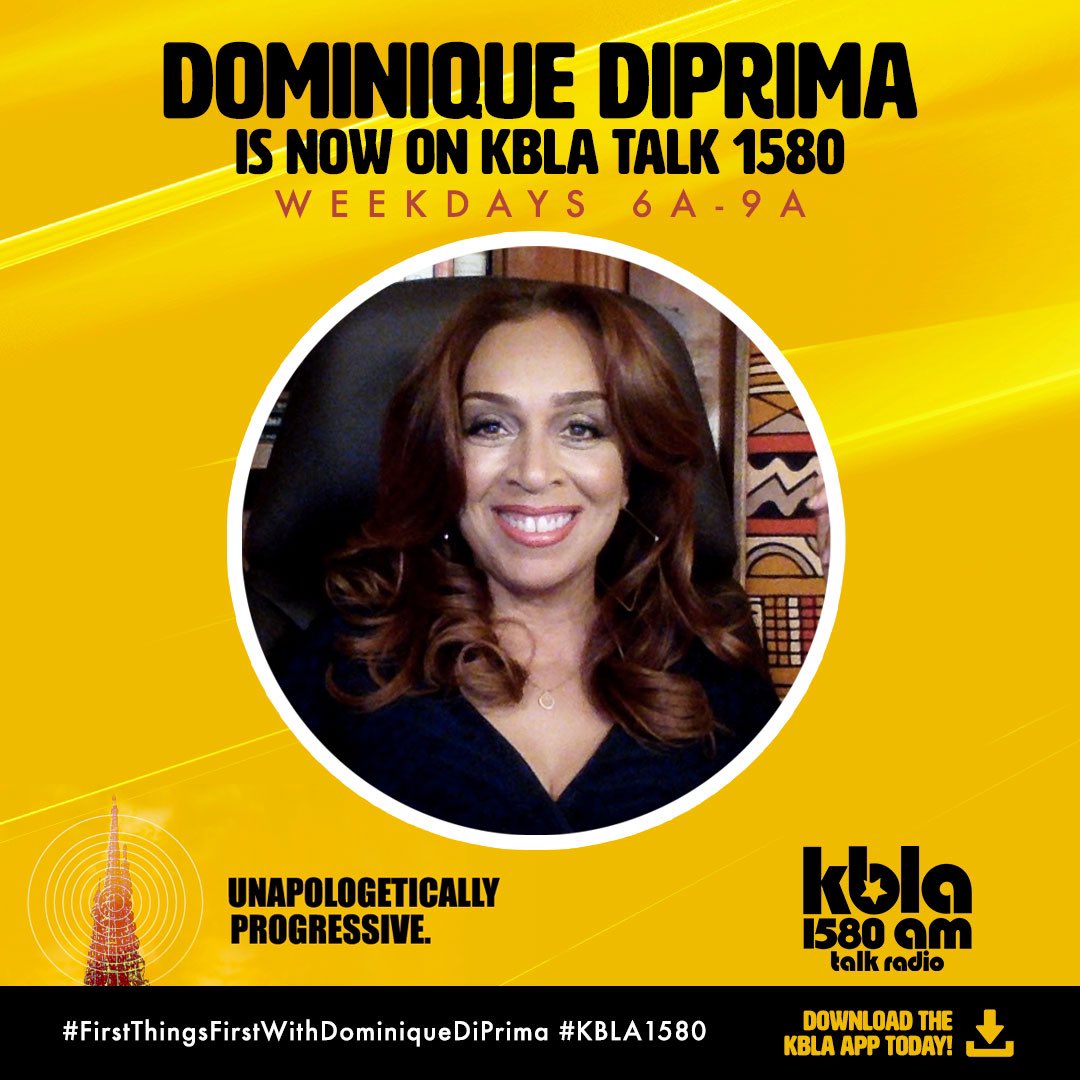通过
多米尼克DiPrima
Now that we have re-elected our President for another four years, 它是真正的时间是我们所期望的变化. 这是一个偶然的历史时刻,专注于创造周围的几个关键问题达成一些共识. 这是一个完美的时间走到一起围绕一个具体议程. I don’t claim to have the answers. But I am outlining my ideas in four key areas as a way of fueling the dialogue that in turn moves us to action.
THE BLACK议程 #2: 教育
Much has been made of the achievement gap – the fact the African American students perform at lower levels academically than young people in other communities. I will save the discussion about why for my radio show, or perhaps another column on another day. My real interest is in how to overcome it. And clearly this should be part of our Black agenda.
• Require Credentialed Teachers in Low Performing Schools – Study after study shows that teachers in predominately African American Schools are less likely to have full teaching credentials or teach in their area of specialization. Seems like a good place to start.
• Throw Money at the Problem! – It’s popular to say that “throwing money at the problem doesn’t fix it.” 噢? Well let’s prove it. Every big city I go to I find the schools in wealthy neighborhoods are doing just fine! Can we mandate the same per capita spending per child in all public schools? The same standards for facilities and upkeep? The same classroom sizes? Can we enforce uniform standards of books and supplies?
• Throw Food at the Problem! – Some districts are starting to take steps toward providing not just supplemental lunches but also breakfasts for needy children. This is a giant step toward educational equality. No one can learn when they are hungry. Too many of our children are struggling academically and/or behaviorally for lack of a proper breakfast. Low income breakfast programs should be available in every public school. (This also creates jobs in the food service industry!)
• Keep Schools Open After School – Extended hours for public school facilities where children can do homework, play safely or participate in supervised activities would go a long way toward closing the achievement gap. Such programs (like L.A.’s Best here in Los Angeles) help kids get homework done, keep them from watching hours of television and protect them from being victims or participants in crime. (This also creates jobs supervising such programs!)
• Expand Gifted Programs for Low Income Youth – Create programs to identify and properly educate gifted children in low income and communities of color. The polar opposite of Special Education is underfunded or non-existent in poor communities. Many of these children end up in Special Education labeled as behavioral problems, or on the streets using their unique talents for crime.
• Create a Parallel Testing System for Special Education – In order to prevent Charter schools from pushing off challenging students on the lowest performing mainstream public schools, these children’s test scores should not impact a school’s API score. Incentives and/or a parallel testing system should be put in place to stop the further marginalizing of these students and to make sure charters are not creating a false sense of educational improvement by simply skimming the “cream of the crop” from local public schools, and abandoning the students who are most in need in order to spruce up their track records.
• Upgrade School Facilities – Working bathrooms, decent libraries and safe grounds should be standard at all public schools regardless of neighborhood. Here is one of those huge infrastructure projects to put American back to work!
• Negotiate Compromise with Teachers Unions Nationally – Stricter teacher evaluations, and making it easier to fire incompetent or shady teachers are already on the table in some districts across the country, but it need to happen everywhere. We also have to look at tweaking seniority rules to avoid constant turnover at low income schools due to budget cuts (last hired first fired hits our schools hardest,) and the dumping of lousy teachers in low income communities.
• Pay Teachers More, Cut the Administrative Fat – Can we mandate percentages of school budgets to go to the classroom (much like the new formulas for insurance companies that have forced them to refund some customers?) When we cut school budgets, instead of shortening school years and increasing class sizes can we mandate cut backs on consultants and administrators?
• Safe Passage Programs – 我们要么需要联邦/州拨款,举办家长/社区安全通道,并从学校或我们需要与黑帮介入专家合作,以确保团伙的边界和领土没有防止儿童参加或得到安全上下学.
•中断巨型学区成容易管理的小区域 – 繁文缛节和官僚层是太艰巨对于一般家长或有关公民承担. 小, 社区学区似乎更好地运作.
•建立激励机制和更容易获得的家长参与 – 启动计划,以协助低收入及在职家长在学校的会议和活动的参与. 从提供托儿供弟弟妹妹在晚上和周末的时间安排家长会和教师会议, 认真的努力必须致力于提高家长参与制作, 以及对如何有效地为他们的孩子在学校系统内倡导家长教育.
•公共课程暑期夏令营 – 许多研究已经表明了巨大贡献的教育差距是在与他们的萨默斯什么年轻人做. 颜色大多低收入家庭和家庭没有在他们的预算将他们的孩子送到了中产阶级和富裕的孩子享受丰富的夏令营. 我们可以帮助的公平竞争创造这样的方案,是免费或可负担的低收入家庭. (更多的就业机会在这里乡亲! And more crime reduction!)
I know I am missing some key stuff here, but these are the things that come to mind as I think of the things every child should have access to, and every parent wishes for their child. Please add your thoughts. This is part of an ongoing dialogue. I’ll do a couple more blogs on my ideas for our Black agenda. 之后, we’ll create forums on the radio and in the community to explore further and see if we can agree on a few concrete things to organize around. We’re fired up and ready to go…So let’s turn that fire into real substantive progress! Let’s be the wind in the sails of our lawmakers and our President! We can…We will…We must!



十一月 27, 2012 在 8:52 下午
My first question is this: to the other 43 presidents, did we issue them a “Black Agenda”? I recall Marcus Garvey; Martin Luther King and Malcolm X all had a Black Agenda; I don’t want nothing to happen to our First “Black President”? John Kennedy, and Robert Kennedy, 也有一 “Black Agenda” Lincoln also had a “Black Agenda” by making it law that we (Blacks have the right to vote) are you following me, they were all killed.
I do not believe that Rodney King drowned in his pool either. Consider what i am saying to you.
十一月 28, 2012 在 7:08 关于
Substantial adjustments in California’s education policy will be necessary to mitigate the problem outlined in Dominique’s blog. The solutions are likely to be as complex as the problems and clearly Dominique understands the complexities associated with the deficiencies we face. The comments that follow are submitted from the bias/perspective of a parent of a child who is enrolled in public school, a graduate of a public high school, and a former teacher who taught in public school for more than twelve years before resigning. There are several points that each of us should consider as we discuss or consider the possible solutions to the problems before us:
(1) Require Credentialed Teachers for Low-performing Schools: NCLB (不让一个孩子掉队) legislation attempted to address this by requiring that schools hire fully credentialed teachers and phase out all educators who were working in classrooms on emergency permits. Licensure or certification is only part of the solution. 当然, students do better when taught by a credentialed teacher; 然而, and most teachers know: 成绩差距和教学凭证之间的相关性是一个很脆弱的. 余下的问题在我们的公立学校是由教师配备一个惊人的数字所有的人都特命, 但无法达到或维持AYP (适当年度进步) 目标校一年后学校一年. 我们努力吸引和留住有天赋的教育工作者一直深不可测. “紧急许可证”未创建,因为求职者有紧急; 它的形成是因为学校有紧急. 受过教育的职业谁进入k中的军团 -12 教育和假期通常是留出讨论. 有太多的老师悄悄离开这个行业. 对话是不完整的自己的声音. They are the ones who can speak with candor without fear of administrative reprisal.
(2) Stricter Teacher Evaluations: Most teachers who are committed to helping their students to get the most out the school experience would not protest a reconstruction of the evaluation system. They want to provide the best education possible and they realize that we grow through critique. Many teachers are concerned about how a school administrator would inappropriately use the evaluative process to harass them with inaccurate characterizations of them as a professional. Whatever problems that exist with public school teachers are also prevailing problems with public school administrators. It is imprudent to discuss teacher evaluation without discussing the evaluation process for administrative staff as well. Marva Collins and Jaime Escalante are two individuals who are thought of as luminaries of the teaching profession. They are also fine examples of teachers who routinely received unfavorable teacher evaluations and whose gifts for teaching went unrecognized and undocumented by the administrators who had the responsibility to do so.
(3) Pay Teachers More: Teachers will be paid higher wages when the values and priorities of our society changes. The Bureau of Labor Statistics is projecting a significant shortfall in the number of college graduates for the number of jobs in the United States in the coming years and colleges and universities are increasingly concerned with the number of applicants who lack the ability to write at the collegiate level. These developments reflect on the lower institutions, namely the public schools that are responsible for feeding these higher institutions. These developments will in the long-term bring a new focus on these feeder schools and methods to improve k-12 education including increasing teacher pay. In the short-term, we could create and institute a program by which teachers could sign up for a merit pay option, receiving a bonus at the end of the school year when their students perform or improve significantly on standardized tests.
(4) Throw Money at the Problem: Proposition Thirteen remains public education’s largest and most controversial policy issue. When Proposition 13 在通过 1978 it was originally sold to voters as a protection for homeowners, helping ensure lower taxes for average Californians. With Proposition 13 in place, California schools are forced to rely on Sacramento for most of their funding. Prior to Proposition 13, in Serrano vs. Priest, the California Supreme Court ruled that reliance on property taxes violated the California Constitution in 1976. It broke the connection between local school spending and property taxes. Serrano required changes in existing school financing in order to insure the equal financial ability to educate children in all school districts and equal education opportunity for all children in California. To comply with the Serrano vs. Priest ruling, the California legislature passed Assembly Bill 65 in September 1977. AB 65 contained provisions for extending equity and equality of opportunity of all California children by giving both dollar aid and taxpayer relief to tax-poor school districts while limiting spending in tax wealthy school districts.
(5) Incentivizing Parent Involvement: There is regular discussion on the web and beyond about the dearth of parental involvement in public schools, and this is accurate to a large degree. But this is an issue where schools have botched their opportunity to lead. The staff at schools located in neighborhoods with lower property values usually makes only feeble attempts at developing the collaborative empowerment networks that are necessary for the overall success of the student population. Experience has taught me that although parents and local business owners are less involved than they could be, they are ready and willing. They don’t often receive the leadership and vision that they expect and are entitled to from school personnel. I spent all of my teaching years working with underserved children who came to me from underserved households. These overworked and underpaid parents were always willing to donate their time and money to support my efforts as a teacher. Those people and their children were special to me, but I cannot accept any claims that they were any different from parents all over California. In spite of what any of us may read: parents will always step up to support a good teacher, but teachers are obligated to open the proverbial door and invite parents in and talk openly and honestly with them.
十二月 2, 2012 在 7:22 下午
I understand they above comments, however nothing I read in the above comments were directly aimed at Black children.
Post desegregation did we have highly paid teachers?
Did we have the most upto date books?
How about small classroom sizes?
The answer to all those questions are no! To solve the Black educational problem requires a Black assessment, not a White Liberal agenda painted Black.